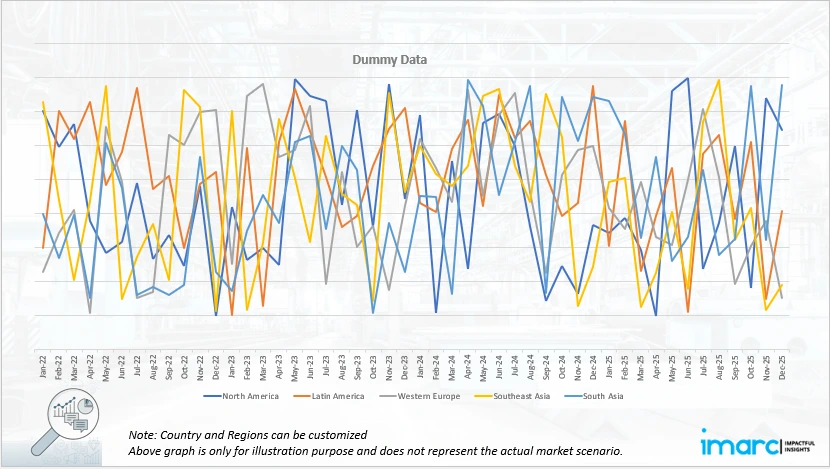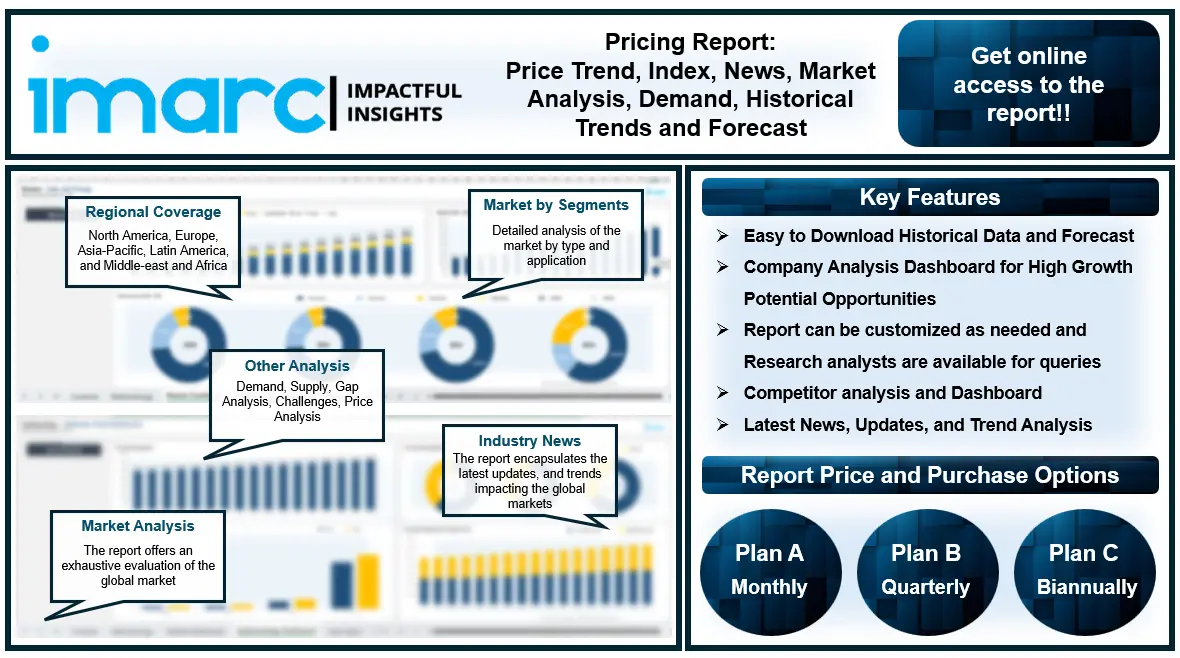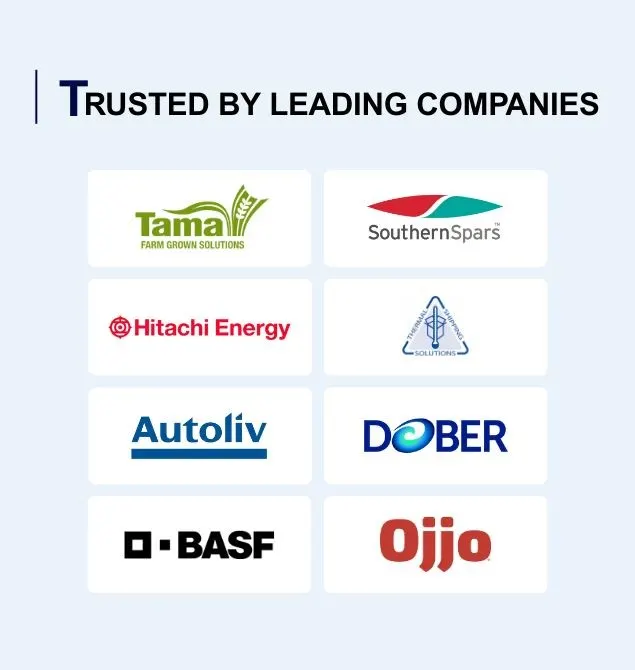
Threonine Prices, Trend, Chart, Demand, Market Analysis, News, Historical and Forecast Data Report 2025 Edition
Threonine Price Trend, Index and Forecast
Track the latest insights on threonine price trend and forecast with detailed analysis of regional fluctuations and market dynamics across North America, Latin America, Central Europe, Western Europe, Eastern Europe, Middle East, North Africa, West Africa, Central and Southern Africa, Central Asia, Southeast Asia, South Asia, East Asia, and Oceania.
Threonine Prices Outlook Q3 2025
- USA: USD 1718/MT
- China: USD 1351/MT
- Germany: USD 1630/MT
- Japan: USD 1521/MT
- India: USD 1625/MT
Threonine Price Chart

Get real-time access to monthly/quarterly/yearly prices Request Sample
During the third quarter of 2025, the threonine prices in the USA reached 1718 USD/MT in September. Prices moved downward as demand from animal feed manufacturers softened. Lower procurement from poultry and livestock feed producers and sufficient domestic availability influenced sourcing behavior. Buyers focused on inventory management and limited purchases to near-term feed production requirements.
During the third quarter of 2025, the threonine prices in China reached 1351 USD/MT in September. Prices declined due to reduced export demand and moderated domestic consumption from feed producers. Adequate production levels and cautious downstream purchasing reduced procurement urgency. Buyers emphasized short-cycle sourcing and inventory optimization.
During the third quarter of 2025, the threonine prices in Germany reached 1630 USD/MT in September. Prices moved downward amid weaker demand from compound feed manufacturers. Softer livestock production activity influenced procurement volumes. Buyers relied on existing inventories and aligned sourcing with confirmed feed formulation schedules.
During the third quarter of 2025, the threonine prices in Japan reached 1521 USD/MT in September. Prices declined as demand from feed and nutrition manufacturers moderated. Controlled purchasing behavior and sufficient supply availability influenced sourcing decisions. Buyers limited procurement to immediate operational needs.
During the third quarter of 2025, the threonine prices in India reached 1625 USD/MT in September. Prices moved downward due to cautious buying from feed producers and moderated demand from the poultry sector. Adequate supply availability influenced procurement strategies. Buyers focused on aligning purchases with short-term feed production requirements.
Threonine Prices Outlook Q2 2025
- USA: USD 1780/MT
- Germany: USD 1710/MT
- Japan: USD 1570/MT
- China: USD 1410/MT
- India: USD 1670/MT
During the second quarter of 2025, the threonine prices in the USA reached 1780 USD/MT in June. Demand from animal feed and livestock nutrition manufacturers shaped procurement activity. Buyers aligned sourcing with production planning and inventory management strategies.
During the second quarter of 2025, the threonine prices in Germany reached 1710 USD/MT in June. Procurement was influenced by compound feed production and livestock nutrition requirements. Buyers coordinated sourcing with formulation schedules and distributor planning.
During the second quarter of 2025, the threonine prices in Japan reached 1570 USD/MT in June. Demand from feed manufacturers and nutrition formulators guided sourcing decisions. Buyers aligned procurement with operational requirements and inventory planning.
During the second quarter of 2025, the threonine prices in China reached 1410 USD/MT in June. Consumption from domestic feed producers and export-oriented suppliers influenced procurement patterns. Domestic production capacity and inventory availability supported material access.
During the second quarter of 2025, the threonine prices in India reached 1670 USD/MT in June. Demand from poultry and livestock feed manufacturers shaped procurement volumes. Buyers structured sourcing around production schedules and distributor commitments.
Regional Coverage
The report provides a detailed analysis of the market across different regions, each with unique pricing dynamics influenced by localized market conditions, supply chain intricacies, and geopolitical factors. This includes price trends, price forecast and supply and demand trends for each region, along with spot prices by major ports. The report also provides coverage of FOB and CIF prices, as well as the key factors influencing the threonine prices.
Europe Threonine Price Trend
Q3 2025:
As per the threonine price index, Europe experienced downward price movement, led by declines in Germany. Reduced demand from compound feed manufacturers and moderated livestock production activity softened regional consumption. Buyers across Europe relied more heavily on existing inventories and delayed fresh procurement. Feed formulation adjustments and cautious purchasing by integrators influenced sourcing behavior. Import availability and established supplier relationships supported continuity, with procurement decisions closely aligned to confirmed feed production requirements rather than forward inventory build-up.
Q2 2025:
In Europe, threonine demand during the second quarter was shaped by procurement from compound feed manufacturers and livestock nutrition producers. Buyers coordinated sourcing with feed formulation schedules, regulatory compliance requirements, and distributor planning. Import availability supported material access across key markets. Procurement strategies emphasized maintaining continuity of supply for ongoing feed production and aligning purchases with confirmed manufacturing needs.
This analysis can be extended to include detailed threonine price information for a comprehensive list of countries
| Region | Countries Covered |
|---|---|
| Europe | Germany, France, United Kingdom, Italy, Spain, Russia, Turkey, Netherlands, Poland, Sweden, Belgium, Austria, Ireland, Switzerland, Norway, Denmark, Romania, Finland, Czech Republic, Portugal, and Greece, among other European countries. |
North America Threonine Price Trend
Q3 2025:
As per the threonine price index, North America experienced downward price movement, driven by declines in the USA. Softer demand from poultry and livestock feed producers reduced regional consumption. Buyers adopted cautious procurement strategies, prioritizing inventory optimization and minimizing spot purchases. Adequate domestic availability and distributor stock levels supported supply continuity. Sourcing decisions remained closely linked to near-term feed production needs and livestock sector demand visibility.
Q2 2025:
In North America, threonine demand reflected procurement aligned with poultry and livestock feed production cycles. Buyers coordinated sourcing with inventory planning, distributor requirements, and feed formulation schedules. Domestic availability and established supply chains supported continuity, while procurement strategies focused on meeting operational feed manufacturing requirements.
Specific threonine historical data within the United States and Canada can also be provided.
| Region | Countries Covered |
|---|---|
| North America | United States and Canada |
Middle East and Africa Threonine Price Trend
Q3 2025:
As per threonine price chart, the prices in the Middle East and Africa fluctuated due to a complex interplay of factors, primarily driven by supply chain disruptions, seasonal demand shifts, and geopolitical influences.
Q2 2025:
The report explores the threonine pricing trends and threonine price chart in the Middle East and Africa, considering factors like regional industrial growth, the availability of natural resources, and geopolitical tensions that uniquely influence market prices.
In addition to region-wise data, information on threonine prices for countries can also be provided.
| Region | Countries Covered |
|---|---|
| Middle East & Africa | Saudi Arabia, UAE, Israel, Iran, South Africa, Nigeria, Oman, Kuwait, Qatar, Iraq, Egypt, Algeria, and Morocco, among other Middle Eastern and African countries. |
Asia Pacific Threonine Price Trend
Q3 2025:
As per the threonine price index, Asia Pacific experienced downward price movement, led by declines in China, Japan, and India. Reduced demand from feed manufacturers and moderated livestock production softened regional consumption. Buyers adjusted sourcing strategies to reflect lower operating rates at downstream feed mills. Domestic production capacity and regional trade flows ensured material availability, allowing procurement to remain aligned with confirmed orders and short-term feed formulation needs.
Q2 2025:
In Asia Pacific, threonine demand was driven by feed manufacturing activity, mainly across China, Japan, and India. Buyers aligned sourcing with feed formulation planning, livestock production requirements, and downstream demand visibility. Domestic production capacity and regional trade flows supported material availability, allowing procurement to remain aligned with confirmed feed manufacturing needs.
This threonine price analysis can be expanded to include a comprehensive list of countries within the region.
| Region | Countries Covered |
|---|---|
| Asia Pacific | China, India, Indonesia, Pakistan, Bangladesh, Japan, Philippines, Vietnam, Thailand, South Korea, Malaysia, Nepal, Taiwan, Sri Lanka, Hongkong, Singapore, Australia, and New Zealand, among other Asian countries. |
Latin America Threonine Price Trend
Q3 2025:
Latin America's threonine market is predominantly influenced by its rich natural reserves, particularly in countries like Chile and Brazil. However, political instability and inconsistent regulatory frameworks can lead to significant volatility in threonine prices.
Q2 2025:
Infrastructure challenges and logistical inefficiencies often impact the supply chain, affecting Latin America’s ability to meet international demand consistently. Moreover, the threonine price index, economic fluctuations, and currency devaluation are critical factors that need to be considered when analyzing threonine pricing trends in this region.
This comprehensive review can be extended to include specific countries within the region.
| Region | Countries Covered |
|---|---|
| Latin America | Brazil, Mexico, Argentina, Columbia, Chile, Ecuador, and Peru, among other Latin American countries. |
Threonine Pricing Report, Market Analysis, and News
IMARC's latest publication, “Threonine Prices, Trend, Chart, Demand, Market Analysis, News, Historical and Forecast Data Report 2025 Edition,” presents a detailed examination of the threonine market, providing insights into both global and regional trends that are shaping prices. This report delves into the spot price of threonine at major ports and analyzes the composition of prices, including FOB and CIF terms. It also presents detailed threonine prices trend analysis by region, covering North America, Europe, Asia Pacific, Latin America, and Middle East and Africa. The factors affecting threonine pricing, such as the dynamics of supply and demand, geopolitical influences, and sector-specific developments, are thoroughly explored. This comprehensive report helps stakeholders stay informed with the latest market news, regulatory updates, and technological progress, facilitating informed strategic decision-making and forecasting.

Threonine Industry Analysis
The global threonine industry size reached 853.2 Thousand Tons in 2025. By 2034, IMARC Group expects the market to reach 1320.9 Thousand Tons, at a projected CAGR of 4.93% during 2026-2034. Market growth is driven by rising demand from animal feed formulations, increasing livestock and poultry production, expanding use of amino acids in nutrition products, and continued reliance on threonine for improving feed efficiency across global markets.
Latest News and Developments:
- October 2025: PJSC Tatneft announced plans to build a major amino acid production facility near Voronezh that will include threonine production as a core output.
The joint venture with Chinese amino acid producer Eppen Investments Group and Russian distributor LLC Agritek Bio is set to invest roughly 29 billion rubles into a deep microbiological processing plant. This facility is designed to process up to 250 thousand tons of grain annually to produce 200 thousand tons of threonine per year.
Product Description
Threonine is an amino acid essential for the human and animal bodies that participate in protein biosynthesis, immune function, and maintain normal physiological functions of digestive organs. The primary application of threonine within the animal industry is as an additive in feed, intended to enhance growth performance and feed efficiency. Additionally, threonine is utilized in human nutrition, amino acid-based pharmaceuticals, and other specialized requirements. The key benefits of threonine mainly cover muscle development, liver disease damage repair, and immune responses.
There are two primary types of threonine additives: the naturally occurring L-threonine and the chemically synthesized D-threonine. L-threonine is predominantly utilized in both animal and human nutrition due to its relative stability and superior bioavailability. By incorporating threonine into diets, producers can achieve better growth rates in livestock, reduce feed costs, and promote overall health, making it a crucial component in modern nutritional strategies.
Report Coverage
| Key Attributes | Details |
|---|---|
| Product Name | Threonine |
| Report Features | Exploration of Historical Trends and Market Outlook, Industry Demand, Industry Supply, Gap Analysis, Challenges, Threonine Price Analysis, and Segment-Wise Assessment. |
| Currency/Units | US$ (Data can also be provided in local currency) or Metric Tons |
| Region/Countries Covered | The current coverage includes analysis at the global and regional levels only. Based on your requirements, we can also customize the report and provide specific information for the following countries: Asia Pacific: China, India, Indonesia, Pakistan, Bangladesh, Japan, Philippines, Vietnam, Thailand, South Korea, Malaysia, Nepal, Taiwan, Sri Lanka, Hongkong, Singapore, Australia, and New Zealand* Europe: Germany, France, United Kingdom, Italy, Spain, Russia, Turkey, Netherlands, Poland, Sweden, Belgium, Austria, Ireland, Switzerland, Norway, Denmark, Romania, Finland, Czech Republic, Portugal and Greece* North America: United States and Canada Latin America: Brazil, Mexico, Argentina, Columbia, Chile, Ecuador, and Peru* Middle East & Africa: Saudi Arabia, UAE, Israel, Iran, South Africa, Nigeria, Oman, Kuwait, Qatar, Iraq, Egypt, Algeria, and Morocco* *The list of countries presented is not exhaustive. Information on additional countries can be provided if required by the client. |
| Information Covered for Key Suppliers |
|
| Customization Scope | The report can be customized as per the requirements of the customer |
| Report Price and Purchase Option |
Plan A: Monthly Updates - Annual Subscription
Plan B: Quarterly Updates - Annual Subscription
Plan C: Biannually Updates - Annual Subscription
|
| Post-Sale Analyst Support | 360-degree analyst support after report delivery |
| Delivery Format | PDF and Excel through email (We can also provide the editable version of the report in PPT/Word format on special request) |
Key Benefits for Stakeholders:
- IMARC’s report presents a detailed analysis of threonine pricing, covering global and regional trends, spot prices at key ports, and a breakdown of Ex Works, FOB, and CIF prices.
- The study examines factors affecting threonine price trend, including raw material costs, supply-demand shifts, geopolitical impacts, and industry developments, offering insights for informed decision-making.
- The competitive landscape review equips stakeholders with crucial insights into the latest market news, regulatory changes, and technological advancements, ensuring a well-rounded, strategic overview for forecasting and planning.
- IMARC offers various subscription options, including monthly, quarterly, and biannual updates, allowing clients to stay informed with the latest market trends, ongoing developments, and comprehensive market insights. The threonine price charts ensure our clients remain at the forefront of the industry.
Need more help?
- Speak to our experienced analysts for insights on the current market scenarios.
- Include additional segments and countries to customize the report as per your requirement.
- Gain an unparalleled competitive advantage in your domain by understanding how to utilize the report and positively impacting your operations and revenue.
- For further assistance, please connect with our analysts.
Why Choose Us
IMARC offers trustworthy, data-centric insights into commodity pricing and evolving market trends, enabling businesses to make well-informed decisions in areas such as procurement, strategic planning, and investments. With in-depth knowledge spanning more than 1000 commodities and a vast global presence in over 150 countries, we provide tailored, actionable intelligence designed to meet the specific needs of diverse industries and markets.
1000
+Commodities
150
+Countries Covered
3000
+Clients
20
+Industry
Robust Methodologies & Extensive Resources
IMARC delivers precise commodity pricing insights using proven methodologies and a wealth of data to support strategic decision-making.
Subscription-Based Databases
Our extensive databases provide detailed commodity pricing, import-export trade statistics, and shipment-level tracking for comprehensive market analysis.
Primary Research-Driven Insights
Through direct supplier surveys and expert interviews, we gather real-time market data to enhance pricing accuracy and trend forecasting.
Extensive Secondary Research
We analyze industry reports, trade publications, and market studies to offer tailored intelligence and actionable commodity market insights.
Trusted by 3000+ industry leaders worldwide to drive data-backed decisions. From global manufacturers to government agencies, our clients rely on us for accurate pricing, deep market intelligence, and forward-looking insights.
 Request Customization
Request Customization
 Inquire Before Buying
Inquire Before Buying
 Speak to an Analyst
Speak to an Analyst Request Brochure
Request Brochure




.webp)




.webp)












